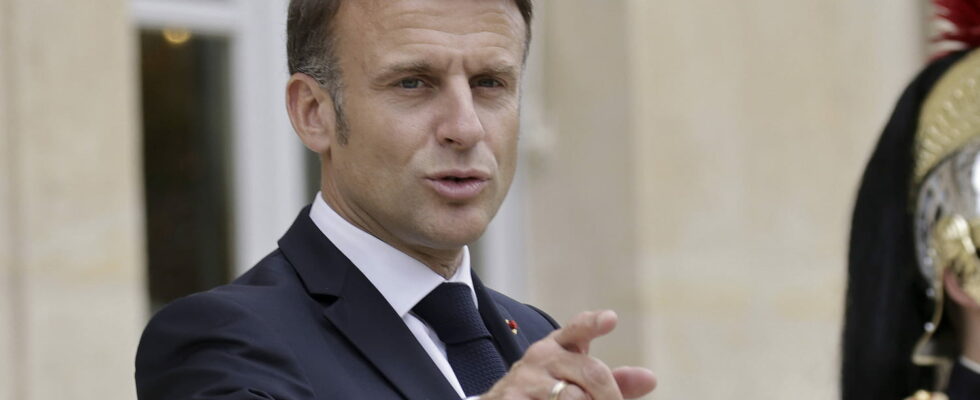The position of Prime Minister is coveted by both the far right and the left, while the legislative elections could lead to the resignation of the government. It is Emmanuel Macron who will have to appoint a possible new tenant of Matignon.
Who will become Prime Minister once voters have cast their ballots for the early legislative elections? Several scenarios are on the table: the maintenance of Gabriel Attal in Matignon if the presidential camp retains its majority in the National Assembly or the appointment of a new head of government in the event of victory of another political force, which he whether the National Rally or the New Popular Front.
The far right has already designated its candidate for Matignon in the person of Jordan Bardella, while the union of the left cannot agree on a name, or even on a method of designation . These approaches tend to make people believe that the choice of the Prime Minister comes down to the majority force in the lower house of Parliament, yet it is up to the President of the Republic, and to him alone, to appoint the head of government like this. is provided for by article 8 of the Constitution: “The President of the Republic appoints the Prime Minister”.
Macron free to appoint whoever he wants to Matignon
Whatever the oppositions say, they will not have a say in the appointment of a new Prime Minister, even if they win the legislative elections. The decision belongs solely to the head of state and therefore to Emmanuel Macron. The fact that cohabitation is required at the head of government does not change this rule, cohabitation is also the subject of a “constitutional void” since the text does not provide for any particular measure.
But case law has been established since the first cohabitation of the Fifth Republic, which occurred in 1986 under the presidency of François Mitterrand. The Head of State then declared: “The President of the Republic appoints whoever he wants. He must naturally place himself in conformity with the popular will. […] I will have to address a figure from the majority to lead the government.” He immediately appointed Jacques Chirac, opponent and representative of the force that has become the majority in the National Assembly. Emmanuel Macron should not break with this custom, but like François Mitterrand he will be free to choose his Prime Minister from within the opposing camp. The President is not obliged to appoint a strictly speaking member of the opposition to Matignon, he must however choose a head of government. capable of gathering the majority of votes in the Assembly. The latter may come from the majority party, from an allied force or be outside the party while having the support of the latter.
In summary, the far right may designate Jordan Bardella but it is Emmanuel Macron who will have the last word and he will be able to set his sights on someone else. As for the left which cannot agree on a name, the appointment of a Prime Minister from its ranks by the Head of State could fuel already existing tensions.
A choice forced by the threat of a motion of censure
Free to appoint whoever he wants as Prime Minister, Emmanuel Macron is theoretically not obliged to replace the head of government at the end of the legislative elections and the Prime Minister is not obliged to resign. The Constitution forces the tenant of Matignon to pack up in only two cases: when the National Assembly adopts a motion of censure or when it disapproves of the government’s program or general policy declaration. A dissolution does not correspond to any of these situations, nor does a defeat in the legislative elections. The fact remains that constitutional custom dictates that a Prime Minister submits a “courtesy” resignation after a defeat at the polls.
In the event of a change of majority in the National Assembly, it is still better to change the Prime Minister. Which, if maintained, risks being overturned at the first meeting of the Assembly with the tabling of a motion of censure by the new majority and the vote on it by the same deputies.
The threat of a motion of censure is also the reason which pushes a head of state to appoint a Prime Minister compatible with the majority of the National Assembly during a period of cohabitation, to prevent his government from being pushed at the slightest opportunity. towards the exit. “The president has the choice. But this Prime Minister, if he has accepted his appointment, must be able to resist a possible motion of censure. His choice is therefore constrained”, recalls the constitutionalist Bastien François to Release. The filing of a motion of censure is also possible if the President refuses to appoint the person designated by the majority force, but if the latter is capable of carrying the ideas of the party, is it a good calculation to overturn it?
